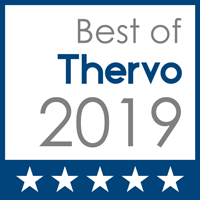Eating Disorders
- Eating Disorder Recovery Is Possible, Even During a Crisis: Activities and Affirmations
- Treatments Provided
- Group Therapy Philosophy
- Eating Disorder Myths
- Types of Eating Disorders
- Intuitive Eating
- Treatment
- General Tips
- Tips for Parents
- 15 Warning Signs
- How to Help a Friend
- Keep in Mind
- ED Resources
- ED in the News
- Excerpts from ED Victims
- Letters to...
- Getting Proper Treatment?
- Do's and Don't's
- Dieting
- EATING DISORDER RESOURCES
- ED Costs to Economy Chart
- Teen body image and self-esteem: A practical guide for parents
- Male Body Image
At its core, Dr. Susie has a belief in the human capacity to grow and change. She understands the complex and unique nature of eating disorder syndromes, underscoring the need for flexibility in treatment approaches. Further, Dr. Susie recognizes that changes can only occur one step at a time.
Dr. Susie approaches the treatment of eating disorders in a holistic and scientific manner, utilizing every tool at her disposal to facilitate a healthy and satisfying lifestyle. Restoration to and maintenance of a healthy body is crucial to overcoming an eating disorder. Our brains guide our thoughts, feelings and behaviors, and is functionally affected by the consequences of disordered eating.
Dr. Susie’s clients will learn to manage their eating in non-compulsive, normalized ways, and develop a healthy, positive relationship to food and physical activity. As crucial as the physical body is to a healthy balanced life, there are other significant treatment aspects as well. During the group process, clients will learn to deal with difficult emotions and self-destructive urges. They will gain insights, more positive thinking styles, skills for coping effectively with stress, and an appreciation for the development of the human spirit.
Eating Disorder Group Provides:
- Family atmosphere
- Psycho-educational activities
- Skill-Building tools
- Compulsion-Management tools
- Private/confidential support via Dr. Susie's Facebook ED Support Board 24/7
- Sense of hope, belongingness, optimism and effective communication
To enhance:
- Positive relationship building
- A sense of universality and cohesiveness
- Constructive and appropriate support
- The understanding of the eating disorder
- A sense of breaking free from the compulsions
- Boundary recognition and enforcement
- Self-soothing activities
- Affect management
- Amelioration of cognitive distortions
The ideals of process group include honesty, empathy, self-awareness, mutual help and cooperation, non-judgement, and appropriate assertiveness. Process groups facilitate a sense of hope, relationship building skills, belongingness, optimism, and communication.
Group activities include:
Body Image Work
Body Image focuses on supporting and challenging clients as they identify and practice small, incremental steps toward body acceptance through body desensitization. Over the course of this group, clients can learn to challege and replace dysfunctional thoughts and behaviors related to their bodies, food, and the displacement of emotional concerns onto appearance and body image, thus normalizing the relationship to the body.
Spiritual Growth
Dr. Susie believes that an evolving sense of spirituality (universality, connectedness, and "faith" in something greater than one's ego) is an important aspect of a balanced, healthy life. The group will not espouse any specific religious principles and regards all faiths as valid expressions of the desire for a spiritual connection. Each individual is encouraged to develop a worldview that works for them in creating a positive lifestyle.
Psycho-Educational Classes
Psycho-educational classes are structured and geared toward particular stages of readiness and are content-specific to some of the hallmark issues of recovery from eating disordered behaviors.
Nutrition Sanity
This group focuses on teaching clients intuitive eating skills, debunking nutritional myths, and facilitating a sane approach to achieving a balanced style of eating. There are no foods considered "bad,"; no "counting" rituals; and no malnourishment war stories in this or any of the aspects of this group process.
Compulsion Management
Certain eating disorder behaviors have a compulsive or addictive quality that must be addressed. This will focus on models of addiction and methods of breaking free from balance-inhibiting additions.
Skills-Building
Eating disorders serve a function, and cannot be dealt with effectively unless the individual learns other ways to cope and get their needs met. Skill areas include: stress management, personal boundary recognition and enforcement, self-soothing and affect management, amelioration of cognitive distortions, and positive relationship building.
Address
Geneva Building:
1919 NE 45th Street,
Fort Lauderdale, FL 33308
(Suite 218)
- Telephone:
- 954.294.7036




